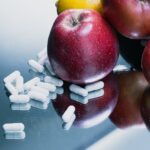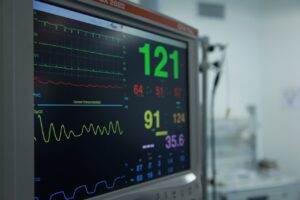Now Reading:
-
01

Foods to Support Addiction Recovery: Boost Healing, Energy, and Emotional Strength Naturally
Recovery from addiction is a powerful step toward rebuilding life, health, and happiness. But recovery isn’t just about quitting substances—it’s about healing the body and mind from the inside out. One essential but often overlooked tool in this healing journey is nutrition. Choosing the right foods to support addiction recovery can boost brain health, stabilize mood, restore energy, and speed up overall healing.
Substance use often depletes the body’s vital nutrients, damages organs, and weakens the immune system. A balanced, nutrient-rich diet can help repair that damage, improve mental clarity, and strengthen emotional resilience. In this article, we’ll explore the best foods to support addiction recovery and why nutrition plays such a critical role in lasting sobriety.
Why Nutrition Matters in Recovery
Substances like alcohol, opioids, and stimulants strip the body of essential nutrients. They interfere with appetite, digestion, and metabolism, often leaving people malnourished, fatigued, and emotionally unstable.
According to the Substance Abuse and Mental Health Services Administration (SAMHSA), proper nutrition in recovery helps regulate mood, reduce cravings, improve sleep, and restore physical health 1.
Foods to support addiction recovery provide the vitamins, minerals, and energy needed to rebuild the brain’s neurotransmitters and repair physical systems weakened during substance use.
Key Nutritional Goals in Recovery
To heal effectively, a recovery diet should aim to:
- Replenish lost nutrients
- Stabilize blood sugar
- Support brain chemistry and emotional balance
- Strengthen the immune system
- Promote steady energy throughout the day
Choosing the right foods helps address many early recovery symptoms, such as depression, anxiety, irritability, and cravings.
Essential Foods to Support Addiction Recovery
Here’s a closer look at the most important foods to support addiction recovery and how they aid the healing process.
1. Complex Carbohydrates
Carbohydrates are the brain’s main source of fuel. Complex carbs release glucose slowly into the bloodstream, preventing mood swings and sudden energy crashes.
Best sources:
- Oats
- Brown rice
- Sweet potatoes
- Quinoa
- Whole grain breads
Complex carbohydrates also boost serotonin production, helping stabilize mood—a critical need in early recovery.
2. Lean Proteins
Proteins provide amino acids, which are necessary for producing neurotransmitters like dopamine and serotonin. Substance abuse often depletes these essential chemicals, leading to depression and cravings.
Best sources:
- Chicken
- Turkey
- Fish
- Eggs
- Legumes (beans, lentils)
Including lean protein in every meal helps rebuild strength and supports emotional balance.
3. Healthy Fats
Fats support brain health, hormone regulation, and reduce inflammation. Omega-3 fatty acids, in particular, are known to help combat depression and promote cognitive recovery.
Best sources:
- Salmon, sardines, and mackerel
- Walnuts
- Flaxseeds and chia seeds
- Avocados
- Olive oil
A 2018 study in Frontiers in Psychiatry showed that omega-3 supplementation improved mood and reduced relapse rates in individuals in recovery 2.

4. Fresh Fruits and Vegetables
Fruits and vegetables are packed with antioxidants, fiber, and essential vitamins that help repair damage caused by substance use.
Best sources:
- Leafy greens (spinach, kale)
- Berries (blueberries, strawberries)
- Citrus fruits (oranges, lemons)
- Cruciferous vegetables (broccoli, Brussels sprouts)
Antioxidants help neutralize free radicals in the body, supporting cellular repair and overall vitality.
5. Probiotic and Prebiotic Foods
Gut health is deeply connected to mental health. Substances often disrupt the gut microbiome, leading to digestive issues and emotional instability.
Probiotic foods:
- Yogurt with live cultures
- Kefir
- Sauerkraut
- Kimchi
Prebiotic foods:
- Garlic
- Onions
- Bananas
- Asparagus
A healthy gut improves nutrient absorption, reduces inflammation, and supports the brain-gut connection critical for emotional resilience.
6. Hydrating Foods and Fluids
Dehydration can worsen withdrawal symptoms and recovery challenges. Proper hydration flushes toxins from the body and improves cognitive function.
Tips:
- Drink plenty of water throughout the day
- Include water-rich foods like cucumbers, watermelon, and oranges
- Limit caffeine and avoid sugary drinks
Even mild dehydration can cause fatigue, irritability, and brain fog—hydration is crucial!
Sample Recovery Meal Plan
Breakfast:
Oatmeal with chia seeds, almond butter, and blueberries
Green tea or water
Snack:
Greek yogurt with a handful of walnuts
Lunch:
Grilled salmon
Quinoa and steamed broccoli
Olive oil and lemon dressing
Snack:
Sliced apple with peanut butter
Dinner:
Chicken stir-fry with brown rice and mixed vegetables
Evening:
Chamomile tea and a banana
This simple, balanced plan incorporates all the best foods to support addiction recovery, providing steady energy, mood support, and essential nutrients.
Real-Life Example: How Nutrition Supported Sarah’s Recovery
Sarah, 35, entered recovery for opioid addiction feeling exhausted, anxious, and disconnected from her body. A nutritionist at her treatment center introduced her to simple, healing foods.
“I started small—just adding more fruits and proteins. Within a few weeks, I noticed I was sleeping better. My mood improved. I felt stronger.”
Today, nutrition remains a core part of Sarah’s self-care and sobriety routine. She credits healthy eating with helping her feel grounded and capable throughout her recovery journey.
Tips for Building a Recovery-Friendly Diet
- Start simple: Add one healthy meal or snack at a time.
- Plan ahead: Keep easy-to-make foods stocked in your kitchen.
- Eat consistently: Aim for balanced meals every 3–4 hours.
- Limit sugar and processed foods: They can cause mood swings and cravings.
- Listen to your body: Eat mindfully and stop when satisfied.
Remember, recovery is not about perfection—it’s about progress and self-care.
Final Thoughts: Food as Medicine for Recovery
Foods to support addiction recovery are not about dieting or strict rules. They are about fueling the body, calming the mind, and rebuilding the life you deserve.
Healing from addiction requires strength, patience, and compassion—for yourself and your journey. Choosing nourishing foods each day is an act of self-respect. It’s a way to honor your body and support your long-term sobriety.
Start small. Choose one meal. One snack. One glass of water. Over time, these small choices build the foundation for lasting health, hope, and freedom.
Sources
- SAMHSA. (2022). Nutrition in Substance Use Recovery. Retrieved from https://www.samhsa.gov ↩
- Bozzatello, P., et al. (2018). Omega-3 Fatty Acids and Psychiatric Disorders. Frontiers in Psychiatry. ↩
























